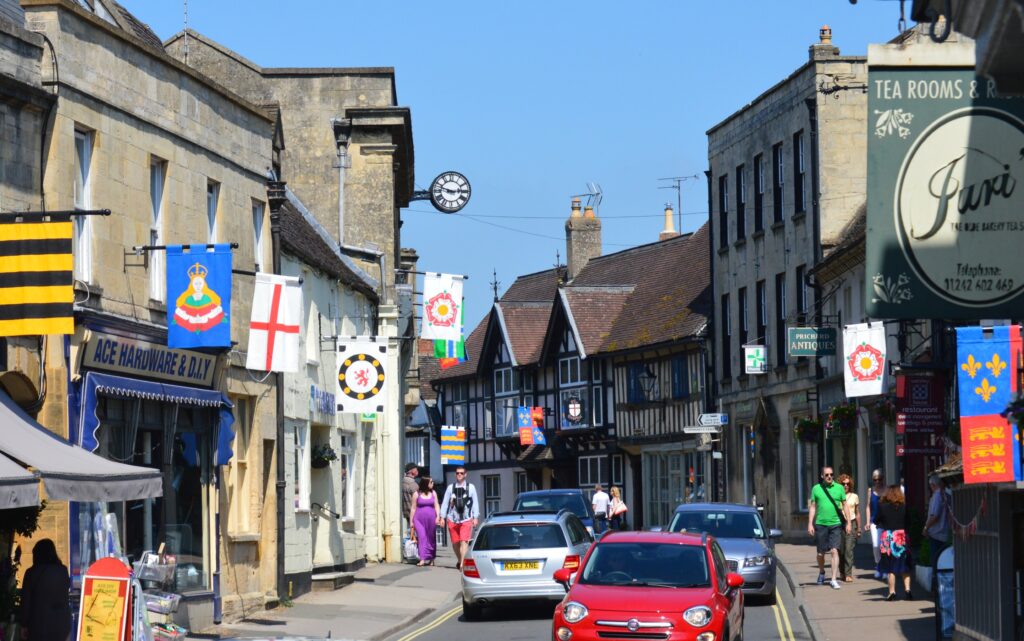Conference season is upon us once more! It is time to find your passport, pack your bag and go travelling. It’s time to meet old acquaintances, make new friends, explore new ideas, and experience how people in different cultures deal with common problems, or in our case, how people in different settings address similar problems related to commons management and governance.

Next month Chris Short and I from CCRI will be attending the 16th Biennial Global conference in Utrecht in July entitled: ‘Practicing the commons: self-governance, cooperation, and institutional change’. The Local Organising Committee has been planning the conference for the last two years and over 600 delegates are expected to attend from more than 80 countries. The conference promises to be one of the largest and most intensive that the IASC has ever held. The conference themes have been developed around the experiences of the Dutch people in managing their natural environment and resources through collaboration and the development of cooperative institutions, key elements of any approach to commons governance.
The conference has stated one of its aims as “…to build on the recent ‘wave of collective action’ that we see occurring (in Europe) in virtually every sector of society including: energy, care, infrastructure and food”. As such it promises to shine a light on alternative forms of commons activity, and point the way towards innovative commons research and action that will prepare the ground for new forms of resource management. The conference themes will enable participants to explore a wide range of issues associated with commons governance, including the following:
- Resilience and cooperation
- Exclusion and control in the formation and governance of commons
- Methods and models to study the commons
- Polycentric governance of global resources
- Relationships between corporations, governments, and commons

Keynote speakers come from around the world and will give presentations throughout the conference week in Utrecht. Professor Saskia Sassen who Chairs the Committee on Global Thought at Columbia University in the USA, will explore issues around ‘The rise of extractive logics in our economies’. Prof. Juan Camilo Cárdenas from the Universidad de los Andes in Colombia will draw on his extensive experience in the analysis and design of institutions that promote cooperation among individuals and solutions to social dilemmas in a presentation entitled, ‘Experiments as tools for learning: Lessons from 20 years of practicing the artisanship of cooperation in the classroom, lab, and field’. Closer to home, Jane Humphries, Professor of Economic History and a Fellow of All Souls College Oxford will build on her research interests around labour markets, industrialization, links between the family and the economy, and the causes and consequences of economic growth and structural change. Her presentation will explore ‘Condescension and the commons: The value and importance of an open countryside’.
A number of excursions have also been organised to explore commons management in practice. Options include:
- Landscape management in Friesland & Groningen provinces
- Relationship between intensive food production and landscapes
- Collective initiatives in food, health and welfare
- Citizens’ collectives in Drenthe province
- Water management in a high-risk environment
- Urban commoners in Arnhem and in the City of Rotterdam
- All day excursion to the Wadden Sea
Having already visited Utrecht earlier in the year to view the conference location I can see it will have its own unique character, set in the centre of an ancient medieval city, with its canals and narrow winding streets. The Conference Organisers at the University of Utrecht have maximised the use of their local resources and events will take place in the central church, in ancient medieval halls and even in a museum for mechanical musical instruments. The conference will also have a focus on commons issues of relevance to the Netherlands, one of the most densely populated parts of Europe, and in particular associated with water management, marine resources, and global warming.
One innovation this year will be the development of ‘practitioner’s laboratories’. A call that went out last year received over 60 responses from a wide range of commoners practitioners to deliver special panels of events to explore commons management from their own unique perspective. Some of these will be sponsored events by organisations involved in managing specific aspects of commons resources, while others are from groups of individuals, covering topics from genetic resources and food manufacturing to water, forests, and landscape management. The ones that get selected should provide some interesting insight into the practical aspects of managing commons on the ground.
As with any IASC Biennial conference, bringing several hundred people from all over the world to live and work closely together in a new location for a few days always generates some interesting cultural interactions. The Dutch are renowned for speaking their mind and can also appear to be obstinate and stubborn, often sticking to their ideas and arguing their case strongly…until they decide they will change their mind of their own accord. They tend to be very tall (some say it is to ensure that they can keep their heads above water – but they are in fact the world’s tallest nation) but are also friendly, tolerant, and open to new ideas – thus an ideal location to explore new forms of commons and alternative forms of governance!
If you are attending the conference in July, then you may be interested in downloading a free book that Kate Ashbrook (Open Spaces Society), Chris and I recently published. It is a collection of blog posts and other writings associated with attending and organising international IASC conferences. It can be downloaded for FREE here.




